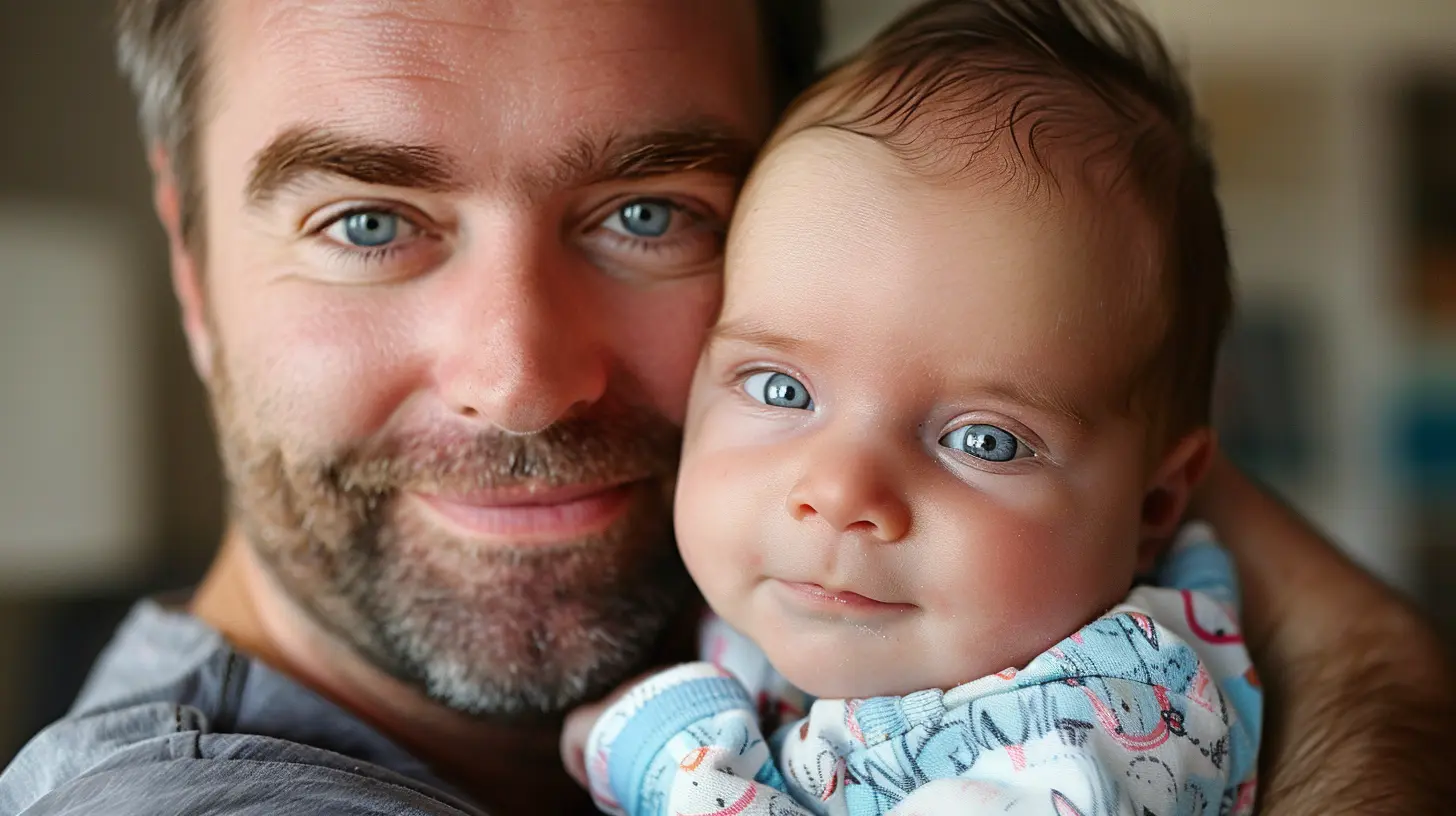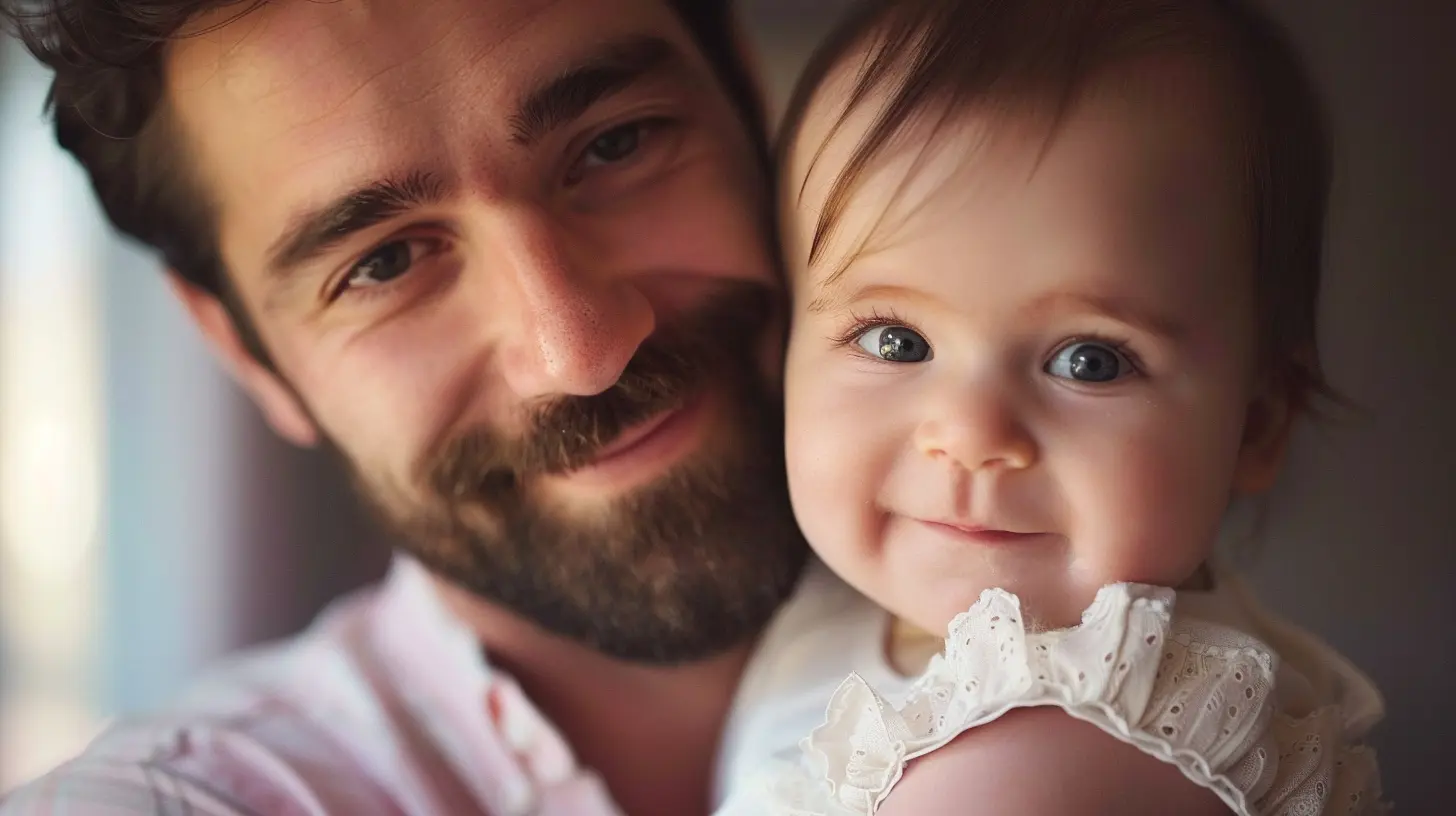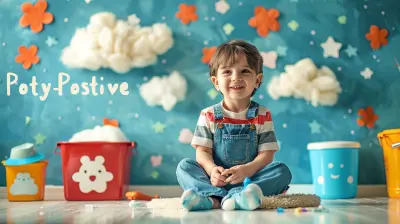How Active Fathering Impacts Child Development
25 November 2024
Child development is a fascinating journey, full of milestones, discovery, and growth. While much attention has historically been placed on maternal involvement, there’s no denying that fathers play an equally important role in shaping their child’s future. But what does it really mean to be an active father? And how does hands-on fatherhood impact a child's development?
In today’s fast-paced world, where both parents often juggle careers, household responsibilities, and social commitments, active fathering can sometimes be overlooked. Yet, mountains of research show that when dads roll up their sleeves and dive headfirst into parenting, they leave a lasting, positive imprint on their children’s emotional, cognitive, and social development. So, let's deep dive into how active fathering can make a world of difference in child development.

Defining Active Fathering
Before we explore the impact, let’s first clarify what we mean by "active fathering." Active fatherhood isn’t just about being physically present or providing financial support. It means being emotionally engaged, offering guidance, setting boundaries, and simply spending quality time with your children.Think of it like this: Just showing up to a party doesn’t mean you're actually mingling and making connections. In fatherhood, being present but disengaged can feel like a hollow presence to a child. Active fathering is all about being in the moment—listening, playing, teaching, and nurturing.
The Difference Between Presence and Participation
You might be around your child every day, but are you “with” them in the true sense? It’s one thing to be in the same room while your child plays, but it's another thing entirely to actively engage in their world. Active participation means showing up not only physically but emotionally and mentally. It’s about being invested in their interests, concerns, and feelings. Just like a garden thrives under active care, children grow and flourish when they have a dad who is truly "there."
Social and Emotional Development
Emotional Security
When fathers are emotionally available, they create a sense of security for their children. Kids need to feel safe—both physically and emotionally—and knowing they can turn to their dad for comfort, encouragement, or even just a hug boosts their self-esteem and emotional well-being.Active fathering encourages emotional openness. And when dads model expressing emotions in a healthy way, children learn to do the same. This emotional security acts like a sturdy scaffold that helps kids through the ups-and-downs of life, from playground dramas to bigger life challenges.
Boosting Confidence Through Play
Fathers often engage in more physical, hands-on play than mothers tend to do. Whether it's tossing a ball in the backyard or building a fort out of couch cushions, these interactions do more than just tire your child out before bedtime (although that’s a bonus). They help build your child’s confidence.Rough-and-tumble play, in particular, teaches children how to manage their physical boundaries and emotions. It’s also a platform for dads to reinforce concepts like “it’s okay to lose” or “try again if you don’t succeed.” These moments of play instill resilience, adaptability, and, ultimately, self-confidence that stays with children long after they’ve outgrown the swings.
Developing Empathy
Here’s a surprising benefit: Active fathering can nurture empathy in children. When dads encourage emotional expression and model compassionate behavior, children become more likely to develop empathy for others. By watching how their dad reacts to different situations—whether it's helping a neighbor or comforting a sibling—children learn to recognize and respond to the emotions of those around them.Fathers who actively discuss emotions help their children become more self-aware and emotionally intelligent. These are vital skills for building strong social relationships throughout life.

Cognitive Development and Academic Success
Setting Up for Success in School
Believe it or not, dads have a significant influence on their child's academic achievements. Studies suggest that kids with actively involved fathers tend to do better in school. Fathers often bring different perspectives and problem-solving approaches into the mix. While mothers may focus on care and protection, fathers often encourage risk-taking, curiosity, and independence—all of which are key factors in cognitive development.When dads take the time to read bedtime stories, assist with homework, or engage in casual conversations about life’s bigger questions, they foster a love of learning and intellectual growth. They help expand the child’s vocabulary, improve critical thinking skills, and build a strong foundation for academic success. Think of it like a plant: sunlight is essential for growth, but nutrients from the soil (in this case, intellectual engagement from both parents) are just as important to thriving.
Encouraging Problem-Solving Skills
Dads often have a unique way of teaching problem-solving, encouraging kids to think outside the box. Whether it's fixing a broken toy or figuring out how to beat a tricky level in a video game, active fathers guide their children in analyzing problems and finding creative solutions. These real-world problem-solving experiences teach children resilience, persistence, and critical thinking, which are essential for their future success, both academically and in life.
Behavioral and Social Skills
Setting Boundaries and Structure
Active fathers are crucial in setting boundaries and teaching discipline. This doesn’t mean they rule with an iron fist—it’s about offering a balanced framework of expectations and consequences. Fathers often naturally take on the role of establishing structure, which helps children understand boundaries.When dads are consistently involved, children are less likely to engage in risky behaviors, like substance abuse or delinquency, during their teenage years. By setting clear limits and consistently enforcing them, active fathers send a strong message about responsibility and making good choices.
Building Healthy Social Relationships
Fathers who actively engage with their children also model positive social interactions. These interactions help children learn how to communicate effectively with others, navigate friendships, and manage conflict. Children observe how their fathers communicate with others—whether it's with their spouse, friends, or colleagues—and they will often mirror these behaviors in their own relationships.A father’s involvement also influences their child’s ability to form healthy attachments. Children who are positively attached to their dads tend to develop stronger friendships, are better at resolving conflicts, and show more cooperative behaviors.
Fostering Independence and Decision-Making
One of the standout roles of an active father is promoting independence. While both parents play critical roles in this area, fathers often encourage their children to take on challenges and learn from their mistakes. This might come in the form of bike riding lessons, teaching them how to tie their shoes, or encouraging them to stand up for themselves during a tough situation at school.Loving, supportive fathers help children become more confident in their decision-making abilities. When kids are given the freedom to make small, safe choices—like what to wear or how to spend their allowance—they learn responsibility and the consequences of their actions. This is a crucial life skill.
Letting Go: Stepping back and Watching Growth
Fathers who balance support with the room for independence help their children become self-reliant individuals. However, it’s also important that dads recognize when to step back. As tempting as it may be to intervene when children are struggling, allowing them to experience consequences and learn from mistakes is an essential part of growing up.In essence, active fathering lays down the blueprint, but children need space to fill in the details. By trusting their child’s growing capacities, dads encourage a healthy sense of autonomy.
The Unique Impact of Father-Daughter and Father-Son Relationships
Father-Daughter Dynamics
Fathers are often the first male role model in their daughter’s lives. How a father treats his daughter—whether with love, encouragement, or respect—shapes her future relationships with men. Active fathering teaches young girls what to expect from future partners, helping them to build self-worth and confidence in their adult lives. A daughter who knows her father values her is less likely to settle for unhealthy or toxic relationships.Father-Son Dynamics
With sons, fathers often play a crucial role in shaping their identity and understanding of masculinity. Boys look up to their fathers as models of how to behave, interact with others, and define their sense of self. Active fathering helps prevent the formation of toxic masculinity by promoting healthy emotional expression and compassion. Sons who see their dads showing empathy, love, and vulnerability are more likely to embrace these traits themselves.Challenges of Active Fathering
Let’s face it, no one said being an active father is easy. Juggling the demands of work, home, and a social life makes proactive parenting a serious challenge. It’s easy to default to passive parenting, especially after a long day. But like all things worth doing, being an active father requires effort, commitment, and sometimes sacrifice.However, the rewards are immense. Active engagement not only strengthens the father-child bond but creates lifelong memories and deeply impacts the child's future.
Conclusion: Dad, Your Role Matters More Than You Think
While the world often focuses on the important role of mothers, fathers bring their own unique and irreplaceable strengths to the parenting table. Active fathering offers children emotional security, cognitive growth, social maturity, and fosters independence. The bond between an active father and his child has a ripple effect that lasts a lifetime, influencing everything from how children handle school to how they form relationships in adulthood.So, dads—your involvement matters. Whether it's reading a bedtime story, playing catch, or lending an ear after a tough day—your active role in your child’s life has immeasurable benefits. Your presence, guidance, and love help shape the confident, well-rounded adults your children will one day become.
all images in this post were generated using AI tools
Category:
FatherhoodAuthor:

Kelly Snow
Discussion
rate this article
13 comments
Kinsley Powell
Active fathers nurture dreams, shaping bright futures together.
February 2, 2025 at 3:45 AM

Kelly Snow
Thank you for your insight! Active fathering indeed plays a crucial role in fostering children's aspirations and shaping their futures.
Jonah Price
Active dads: proof that playtime is just as crucial as bedtime stories!
January 28, 2025 at 4:48 PM

Kelly Snow
Absolutely! Active play fosters creativity, builds bonds, and supports physical and emotional development, making it as vital as bedtime stories.
Carla Ellison
This article beautifully highlights the profound influence active fathering has on children's growth. As a parent, I’ve witnessed firsthand how engaged involvement fosters confidence, emotional resilience, and a stronger father-child bond. Truly inspiring!
January 19, 2025 at 5:29 PM

Kelly Snow
Thank you for your thoughtful comment! I'm glad to hear that you've experienced the positive effects of active fathering firsthand. Your insights truly resonate with the article's message!
Dylan Velez
Grateful for the insights on father involvement!
January 12, 2025 at 5:00 PM

Kelly Snow
Thank you! I'm glad you found the insights valuable!
Veronica McGinn
Active fathering isn’t just a checkbox—it's a game changer. Engaged dads nurture curiosity and resilience, shaping confident, well-rounded kids. Let's celebrate the dads who dive in, play hard, and teach life lessons through every adventure. After all, a father's presence shapes futures in ways we often overlook!
January 8, 2025 at 4:04 AM

Kelly Snow
Absolutely! Engaged fathers play a vital role in shaping their children's development, fostering confidence, curiosity, and resilience. It's essential to recognize and celebrate their impactful presence in our lives.
Brittany McElhinney
Active fathering isn’t just an accessory; it’s a necessity! Dads, step up and show that parenting isn’t a spectator sport. Your kids are watching!
January 2, 2025 at 4:55 PM

Kelly Snow
Absolutely! Active fathering plays a crucial role in child development, fostering emotional security, social skills, and resilience. Engaged dads make a lasting positive impact on their children's lives.
Thalor McDowell
Active fathering plays a crucial role in child development, fostering emotional security and social skills. Engaged fathers contribute positively to a child's cognitive growth, shaping well-rounded individuals who thrive in various environments.
December 26, 2024 at 4:10 AM

Kelly Snow
Thank you for your insightful comment! I completely agree that active fathering significantly enhances a child's emotional, social, and cognitive development, leading to well-rounded individuals. Your perspective underscores the vital role fathers play in nurturing healthy growth.
Owen McVeigh
Active fathering is essential for healthy child development. Engaged fathers foster emotional resilience, boost confidence, and enhance social skills. Prioritizing involvement not only strengthens the father-child bond but also prepares children for future challenges.
December 18, 2024 at 5:56 AM

Kelly Snow
Thank you for your insightful comment! I completely agree—active fathering plays a crucial role in fostering essential skills and resilience in children, shaping their future success.
Eleanor Kelly
Active fathering plays a crucial role in child development. Engaged fathers contribute to emotional stability, social skills, and cognitive growth. By participating in their children’s lives, fathers not only strengthen their bonds but also foster resilience and confidence, shaping well-rounded individuals.
December 12, 2024 at 5:45 PM

Kelly Snow
Thank you for highlighting the essential role of active fathering! Engaged fathers indeed make a profound difference in their children's overall development and well-being.
Loretta Phillips
Active fathering nurtures confidence and resilience in children, shaping them into well-rounded individuals. Your involvement truly makes a lasting difference!
December 9, 2024 at 4:54 PM

Kelly Snow
Thank you! I'm glad you found the article meaningful. Active fathering indeed plays a crucial role in a child's growth and development.
Mia Brooks
Active fathering: the ultimate multitasking challenge! Who knew playing superhero, chef, and nap champion could boost child development? Just remember, capes and aprons are totally interchangeable!
December 7, 2024 at 4:47 PM

Kelly Snow
Absolutely! Active fathering truly enhances child development, proving that engaged play and nurturing roles can make a significant difference. Capes and aprons indeed go hand in hand!
Cerys McAdoo
Great article! It’s amazing how active fathering can shape our little ones. Dads, your involvement matters more than you know—keep being the awesome role models your kids need! 🌟👨👧👦
December 3, 2024 at 3:25 AM

Kelly Snow
Thank you! I’m glad you found the article valuable. Dads truly play a vital role in shaping their children's lives! 🌟
Garrett Richardson
This article beautifully highlights the crucial role active fathering plays in child development. Engaged fathers not only strengthen emotional bonds but also promote cognitive growth and social skills. It’s inspiring to see how meaningful involvement can positively shape a child's future. A must-read for all parents!
November 27, 2024 at 5:02 PM

Kelly Snow
Thank you for your thoughtful comment! I'm glad you found the article inspiring and recognize the vital role of engaged fathers in child development.
MORE POSTS

Lessons From My Dad: What Fatherhood Taught Me

The Impact of a Father’s Love: Building Your Child’s Self-Esteem

How Fathers Can Foster Emotional Intelligence in Their Kids

The Benefits of Dads Taking Parental Leave

The Art of Saying No Without Closing the Conversation

Storytelling as a Communication Tool Between Parent and Child

Fostering Communication with Your Teen

Healthy Eating on a Budget: Tips for Family Grocery Shopping

Understanding Food Sensitivities in Children: Early Signs and Solutions